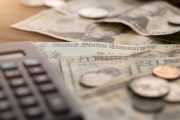
Workers at Camp Construction, the construction giant headquartered in Houston with sites all across the southern United States, received a note along with their last paycheck. Signed by the company’s president, Roger Camp, it read:
Because of the reduction in corporate taxes we, as will all businesses, benefit from this tax cut. We believe that YOU are the reason for our success. And now that we will be giving less of our hard earned income to the federal government, we can share some of it with you.
Please look for a $500 tax cut bonus in your next payroll run.
There are now more than 240 companies who are doing the same for their employees. At current count this will brighten the paydays of more than three million workers.
And the ripple effect of the tax reform law is just starting to be felt. This week Home Depot, Starbucks, and Walt Disney announced that they were giving their people bonuses, or raises, or both, directly because of that law. Home Depot is calling them “tax reform bonuses,” while Starbucks is crediting its $250 million in pay raises and grants of company stock directly to the new law. Disney is lavishing $125 million on 125,000 workers ($1,000 each) along with another $50 million in employee education programs, helping qualify them for further salary increases as they move up to positions of greater responsibility.
Others include Apple (with its declaration it will invest $30 billion of its newly repatriated dollars here in the United States), Walmart, AutoNation, Boeing, Southwest Airlines, and Verizon.
The list also includes specialty drug maker Amicus Therapeutics. The U.S. economy will enjoy an “indirect” benefit from its decision not to build a facility overseas but to build it in the United States instead. Its investment in the new plant, estimated at between $150 million and $200 million, is just the start. When completed there will be at least 200 people working there with an average annual pay of $100,000. Kimberly-Clark (think diapers and tissues) is accelerating its plans to refurbish and retool one of its U.S. factories, thanks to the new law that makes the project even more profitable, according to the company’s president, Tom Falk: “It [the new tax reform law] gives us more incentive to invest, particularly in the U.S. The project made sense before the tax benefit. It makes more sense after the tax benefit.”
The ripple effect is creating what Joseph LaVorgna, a chief economist at the global investment bank Natixis, calls a “virtuous cycle” — one company’s investment becomes another company’s revenue, allowing it to recalibrate its own investment plans. Those revised plans feed other companies’ revenues, causing them to recalibrate their long-shelved projects to invest. And so on.
Stock market forecasters are also making adjustments to their investment outlooks as well. Recognizing that the stock market is essentially a “forecasting” mechanism — investors betting on the future — LaVorgna expects earnings per share of stocks in the S&P 500 Index to increase by between seven and eight percent this year. This would continue to be bullish for stocks.
Others, such as John Lynch, the chief investment strategist for LPL Financial, thinks LaVorgna’s numbers are way too low: “With about 50 companies having [already] reported fourth quarter results, S&P 500 Index earnings are tracking a 12 percent year-over-year increase.” And, added Lynch, this “may prove conservative.”
If Lynch is right, and if the stock market accurately begins to reflect the ripple effect not only of the 240 companies recognizing the benefits of tax reform but of the “on-shoring” (repatriation) of profits held overseas to be invested in the economy (not to mention the increasing perception of the United States as the new low-cost tax haven for the world to foreign investors), then the Dow could easily touch 30,000 by the end of the year.
If so, that will have a ripple effect all of its own. Year-end 401(k) plan statements will likely reflect another healthy increase over 2017, pushing the $5 trillion presently invested in them to new all-time highs. Such increases are likely to cause many, especially those nearing retirement, to do some healthy recalibrating of their own.
There’s another potential “recalibration” likely to take place in November. Recalcitrant and obstructionist Democrats (none of whom voted for tax reform) are going to have a tough time explaining to their constituents just how their “no” vote benefited them. Voters are likely to look at their paychecks and their 401(k) statements and compare them to what they were under the previous Democratic administration, and vote accordingly.
An Ivy League graduate and former investment advisor, Bob is a regular contributor to The New American magazine and blogs frequently at LightFromTheRight.com, primarily on economics and politics. He can be reached at [email protected].



